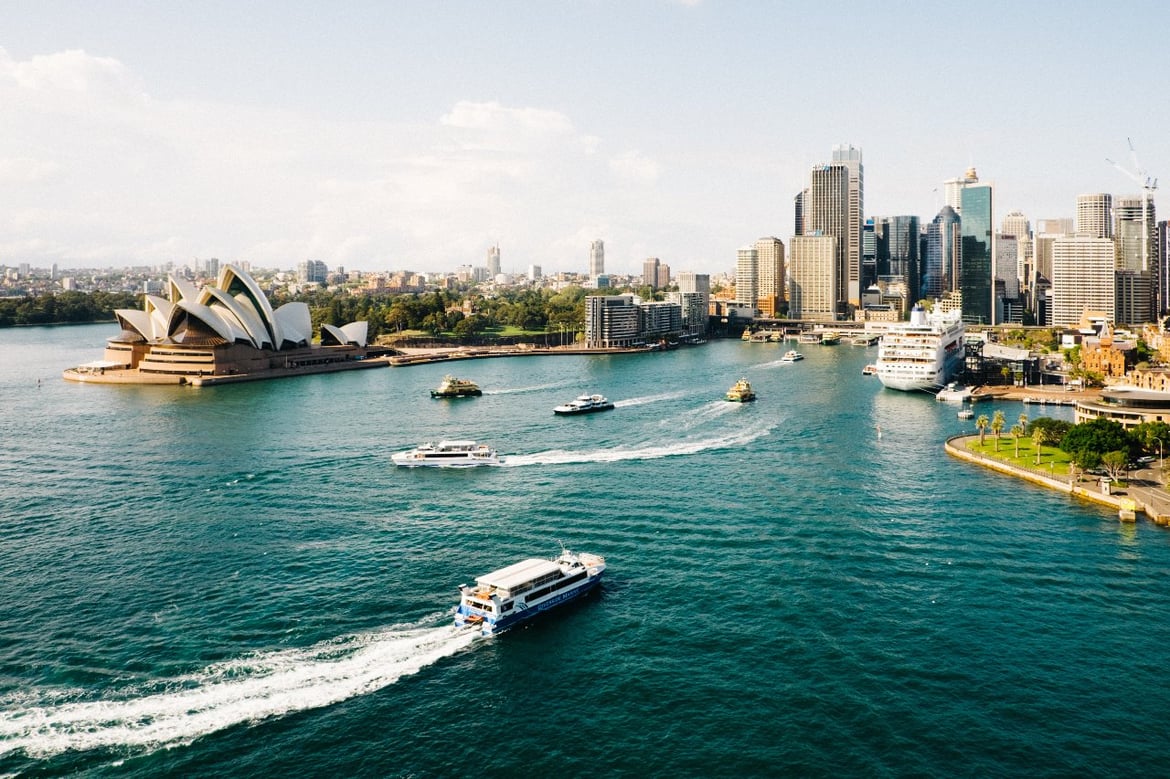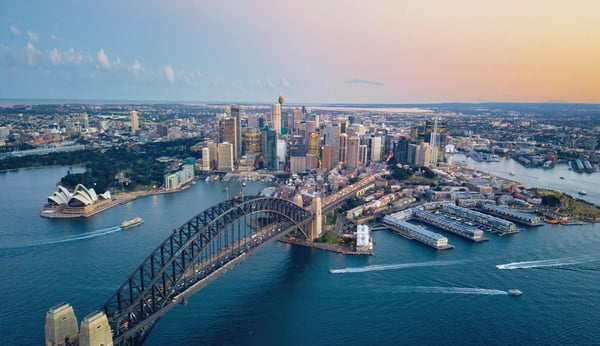One of the key requirements for applying for citizenship in Australia is proof of when you first came to the country. This is called “evidence of first arrival”. Obtaining sufficient proof should be a priority task on your moving to Australia checklist. Luckily, showing evidence of first arrival is fairly straightforward in the digital age.
Another thing to think about if you're planning to live in Australia is the cost of sending money home or elsewhere overseas. There are cheaper options than using your bank to transfer money. CurrencyFair is up to eight times cheaper than traditional banks when you need to send money abroad.
What does evidence of first arrival mean?
Showing that you arrived in Australia legally and on the right visa is now an essential part of expat life in Australia, but the requirements haven't always been so strict. After all, the first Australian citizens didn't officially burst onto the scene until 1949. Up until that point, anyone born or naturalised in Australia was a British subject. Since 1949, more than five million foreigners have become Australian citizens, including 167,232 people in 2021-22.
The conventional path to citizenship is via permanent residency. In 2019-20, 140,366 foreign nationals were granted permanent residency, drawn predominantly from India, the United Kingdom (UK), Philippines, New Zealand and Pakistan in that order.
With the exception of New Zealand citizens, anyone coming to Australia must present a valid visa and incoming passenger card to the Australian Border Force upon arrival. It's one of the most important things to know before moving to Australia. Should you later apply for full citizenship, the Department of Home Affairs will take a keen interest in the date you first arrived, and what supporting evidence is on record to confirm it.
Why does proof of arrival matter?
The date you arrive in Australia is important both for permanent residents on a visa and for anyone who wants to apply for citizenship. Visa conditions do not allow entry after a certain date, which is featured on the permanent residency visa as the “first entry arrive by” date. Should you miss this date for any reason, you will probably have to reapply for your visa, which means redoing your medical and police certificate.
Once you're settled as an expat in Australia, you can apply for citizenship after as little as four years. You'll have to meet the following broad criteria:
-
-
-
Be a permanent resident or eligible New Zealand citizen.
-
Be present in Australia.
-
Have spent time in Australia.
-
Intend to live in Australia.
-
-
That will mean showing the Department of Home Affairs that you have:
-
-
-
Proof of valid permanent residency, especially for the 12 months immediately preceding your application
-
Been living in Australia for at least four years immediately prior to application
-
Not been away from Australia for more than 12 months total in the last four years, and more than 90 days in the last 12 months.
-
-
As a permanent resident, your countdown to citizenship starts either on the date you arrived in Australia for overseas applications, or the date your visa was granted if you were already in Australia. Whichever of the two applies, you'll still need to show evidence of first arrival.
How to show evidence of first arrival
Since 2012, the Australian government no longer stamps passports upon arrival or departure. Neither does it attach visa labels to passports, a practice which stopped in 2015. Instead, all visas are recorded electronically on the Visa Entitlement Verification Online (VEVO) database. When you check in for your flight, your airline will normally confirm your visa status on VEVO. The search takes only a matter of seconds.
Consequently, the procedure for showing evidence of first arrival will depend on the year you immigrated.
If you first arrived after 1990 (when electronic visa records started in Australia)
Your evidence of first arrival will be stored on VEVO. You simply have to log on to apply for your online records (called the ImmiCard). Bear in mind that VEVO will only store your current visa.
If you first arrived prior to 1990
There won't be an electronic record. In that case, you'll have to request a copy of your travel records in and out of Australia from the Department of Home Affairs using form 1359. The process will be a lot easier if you can get the following supporting paperwork together:
-
-
-
Current passport and the passport (or passenger arrival card) you used to enter Australia for the first time
-
Photo ID issued in Australia
-
At least 3 documents proving you have been living continuously in Australia since arrival (e.g. utility records, tax bills, employment contracts).
-
-
Exceptional cases
You will need to update your ImmiCard and obtain your electronic records if you hold a Document for Travel to Australia (DFTTA), which is typically given to refugees, or arrived with a PLO56 (M56) humanitarian visa.
If there is no VEVO record of your arrival and you are unsuccessful with your search via the Department of Home Affairs, a last resort might be to consult the National Archives of Australia. These record passenger lists up to 1989.
Other things to consider
As a permanent resident, you may usually remain in Australia indefinitely, but you do not have automatic right of re-entry if you leave. Your permanent residency visa typically allows for a five-year travel facility that starts on your “must not arrive after date” (not to be confused with your “first entry arrive by” date). After five years have elapsed as a permanent resident, you'll need to apply for a Resident Return Visa or Australian citizenship should you want to leave and re-enter.
Moving to Australia? Find out how you can transfer money up to eight times cheaper with CurrencyFair than with traditional banks when you send money home or abroad.
This information is correct as of November 2022 This information is not to be relied on in making a decision with regard to an investment. We strongly recommend that you obtain independent financial advice before making any form of investment or significant financial transaction. This article is purely for general information purposes. Photo by Dan Freeman on Unsplash













